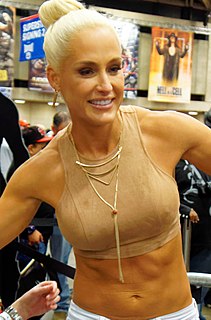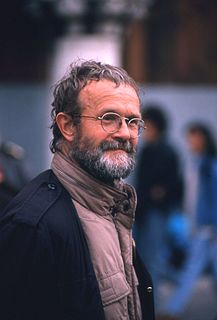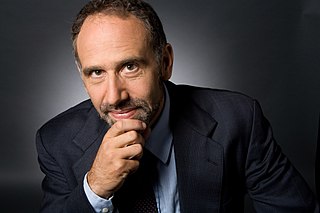A Quote by James Allen Hall
Poetry gave me the life I live: many of the people I love, the places I've traveled, the things I've learned about myself, the job I hold. And I can't count the times I've been on the precipice of making a - shall we say "adventurous"? - decision and thought, "But think of the poem I'll get out of this." Most of them have paid off.
Related Quotes
That's one of those questions that would just love to have a pat answer. You know, poetry's job is to make us feel good. Poetry exists to allow us to express our innermost feelings. There isn't one role for poetry in society. There are many roles for poetry. I wrote a poem to seduce my wife. I wrote a poem when I asked her to marry me. Poetry got me laid. Poetry got me married.
One of the many things I love about bound books is their sheer physicality. Electronic books live out of sight and out of mind. But printed books have body, presence. Sure, sometimes they'll elude you by hiding in improbable places... But at other times they'll confront you, and you'll literally stumble over some tomes you hadn't thought about in weeks or years. I often seek electronic books, but they never come after me. They may make me feel, but I can't feel them. They are all soul with no flesh, no texture, and no weight. They can get in your head but can't whack you upside it.
The Divine Comedy is a political poem and when you say poetry is not about - he's always quoted out of context, that "poetry makes nothing happen," that doesn't mean you shrug your shoulders and don't try to make anything happen. And Dante felt that poetry was engaged, there was a point of view; it's not my point of view, it's orthodox medieval Christianity, and I have my troubles with that. He didn't feel that you could just rule out so important a section of life - we care about these things, and it's out of caring about them that we write poetry.
I started to get so many letters from unlikely people; a single mum going, "I watch your show, I'm not into survival, but I hold down four jobs and I get it when you say it's about persistence and putting a positive attitude into things during difficult times." That for me was a great liberator to realize that the show isn't about me running around, jumping off stuff and flexing muscles, it's about inspiring people. That makes me really happy.
I write poetry to figure things out. It's what I use as a navigating tool in my life, so when there's something that I just can't understand, I have to "poem" my way through it. For that reason I write a lot about family, because my family confuses me and I'm always trying to figure them out. I write a lot about love, because love is continually confusing in all of its many glorious aspects.
Introduction To Poetry I ask them to take a poem and hold it up to the light like a color slide or press an ear against its hive. I say drop a mouse into a poem and watch him probe his way out, or walk inside the poem's room and feel the walls for a light switch. I want them to waterski across the surface of a poem waving at the author's name on the shore. But all they want to do is tie the poem to a chair with rope and torture a confession out of it. They begin beating it with a hose to find out what it really means.
I find it strange that - at least in my take on it - the people who are the most alarmed about the dire times we live in are the ones who seem to be humorless, in their taste for poetry anyway. Humor is just an ingredient. It's always been in poetry. It kind of dropped out of poetry I think during the 19th and up to the mid-twentieth century. But it's found its way back. And it's simply an ingredient.
At the beginning, I thought the best Islamic work was in Spain - the mosque in Cordoba, the Alhambra in Granada. But as I learned more, my ideas shifted. I traveled to Egypt, and to the Middle East many times.I found the most wonderful examples of Islamic work in Cairo, it turns out. I'd visited mosques there before, but I didn't see them with the same eye as I did this time. They truly said something to me about Islamic architecture.
I think we as people struggle for what is meaningful in our lives, and I think that modern, contemporary life is as easy as it's ever been, for many, many people, and the amount of physical exertion, for most people, is less than it's ever been. I think that there is something about the ritual of making things more difficult that people find meaning in.
I know many Europeans and I think many of them don't even believe me when I say that people in US don't have vacations. Obviously a lot of people do but there are many, tens of millions of people that don't and there's certainly no guarantee of a vacation. So paid time off is very valuable where people know they could get four or five weeks vacation, which is absolutely standard in Europe. Denmark has 6 weeks. So I think that's something that's very valuable, giving people time off.































